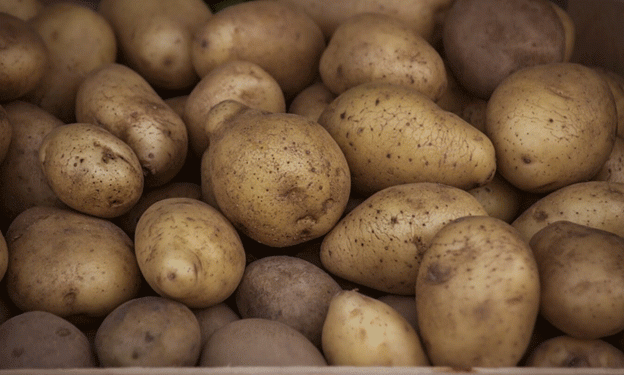Organic potato farming, often dismissed for its perceived lower yields, is proving its worth thanks to innovative practices adopted by farmers like Aditya Tyagi of Saharanpur. By leveraging natural fertilizers and indigenous techniques, Tyagi has demonstrated that organic potato farming can not only match but sometimes surpass conventional methods in terms of productivity and profitability.
Aditya Tyagi’s Organic Approach
Aditya Tyagi, a farmer with years of experience in organic farming, has redefined the approach to potato cultivation. His methods include:
- Seed Selection: Tyagi cultivates high-yielding potato varieties like Chips Sona and Mohan Bhog, known for their adaptability and market appeal.
- Natural Fertilizers: Instead of chemical inputs, he uses compost made from cow dung and vermicompost. This improves soil fertility and enhances the crop’s natural resistance to pests and diseases.
- Jeevamrit Sprays: Prepared from fermented cow urine and other natural ingredients, Jeevamrit is used to strengthen the plants and prevent fungal infections.
- Innovative Practices: Tyagi incorporates additional treatments, such as spraying fermented curd with copper, to promote plant health and prevent rot.
These practices enable organic potatoes to have a longer shelf life—up to six months—compared to conventional potatoes, which often rot within weeks due to chemical residues.
Market and Economic Advantages
Organic potatoes fetch higher prices in markets compared to their chemically grown counterparts. According to Tyagi, selling organic produce in larger markets outside the local region can significantly boost profits. For example:
- Organic potatoes are priced 20-30% higher than conventional potatoes due to their perceived health benefits and longer shelf life.
- The demand for organic produce, driven by increasing health awareness among consumers, has been steadily rising globally and locally.
Breaking Myths About Organic Farming
The myth that organic farming leads to lower yields is being debunked by farmers like Tyagi. By carefully managing soil health and crop inputs, he achieves yields comparable to conventional farming methods. Moreover, the reduced costs of fertilizers and pesticides further increase net profit margins.
Environmental and Health Benefits
Organic farming not only benefits the farmer but also protects the environment. The use of natural inputs:
- Enhances soil biodiversity.
- Reduces water pollution from chemical runoffs.
- Offers consumers chemical-free, healthier food options.
Aditya Tyagi’s success in organic potato farming highlights the untapped potential of sustainable agriculture. With proper seed selection, natural fertilizers, and innovative practices, farmers can achieve high yields and substantial profits while protecting the environment. As demand for organic produce grows, adopting such methods could transform the agricultural landscape, ensuring long-term sustainability and economic viability.







